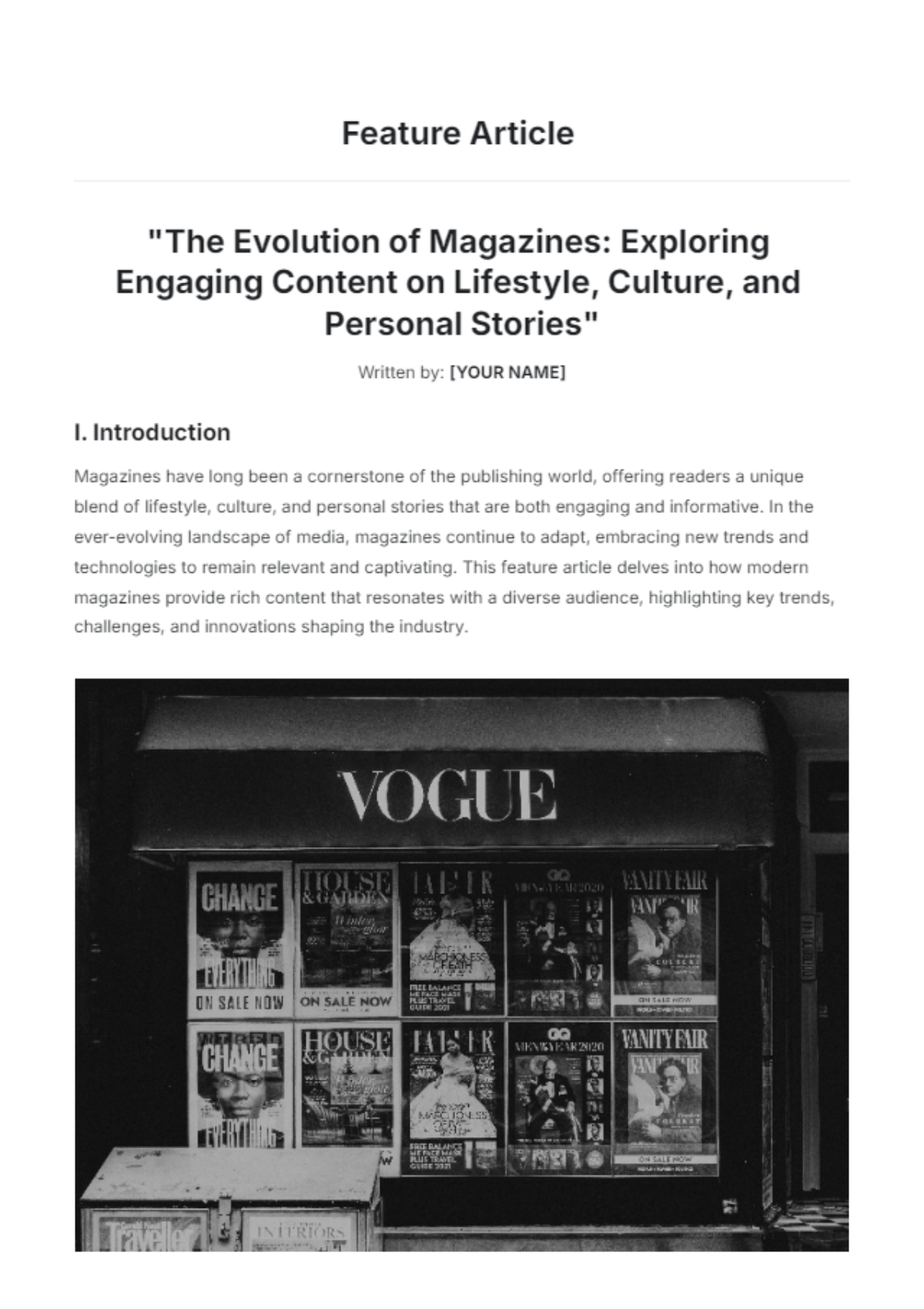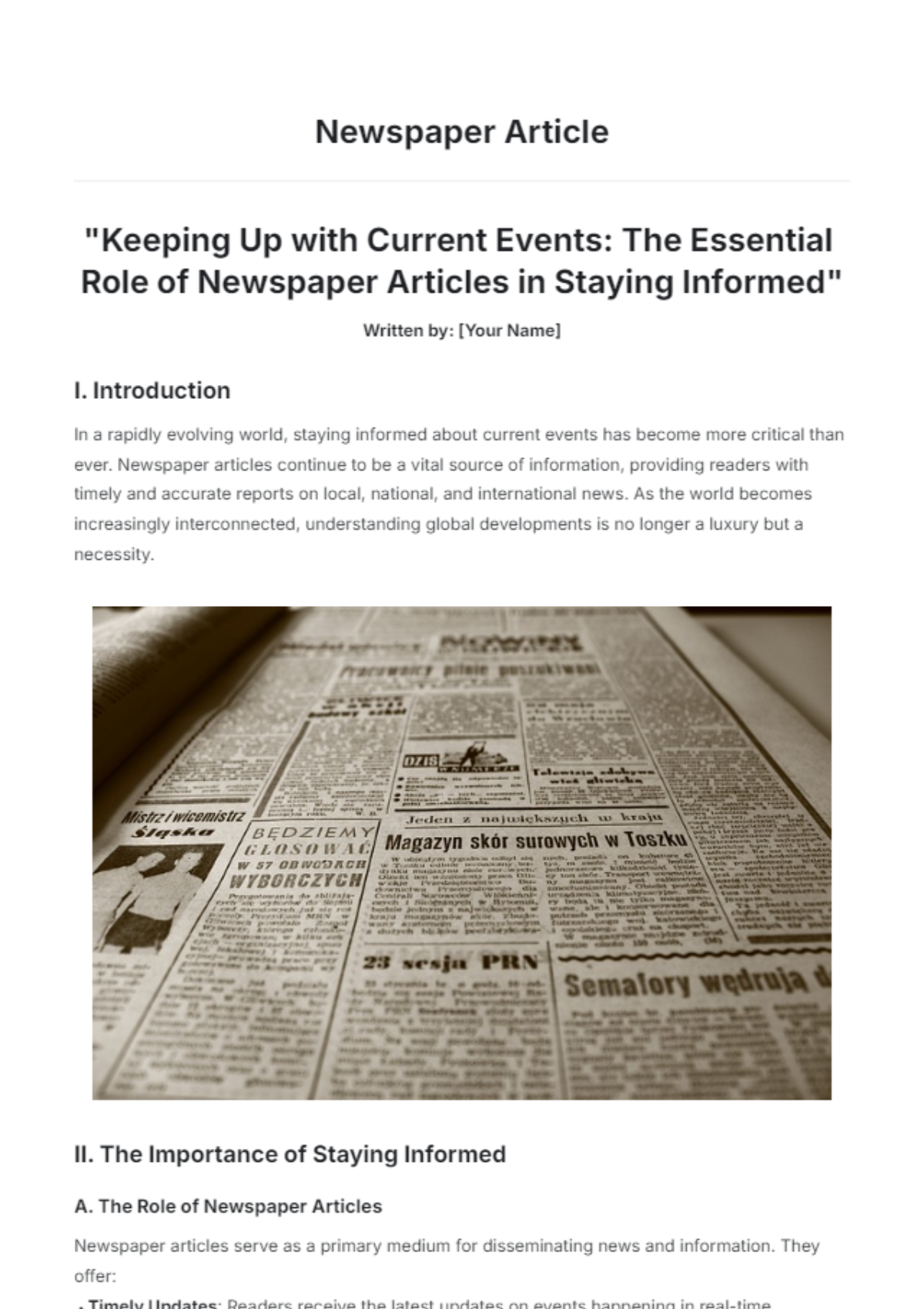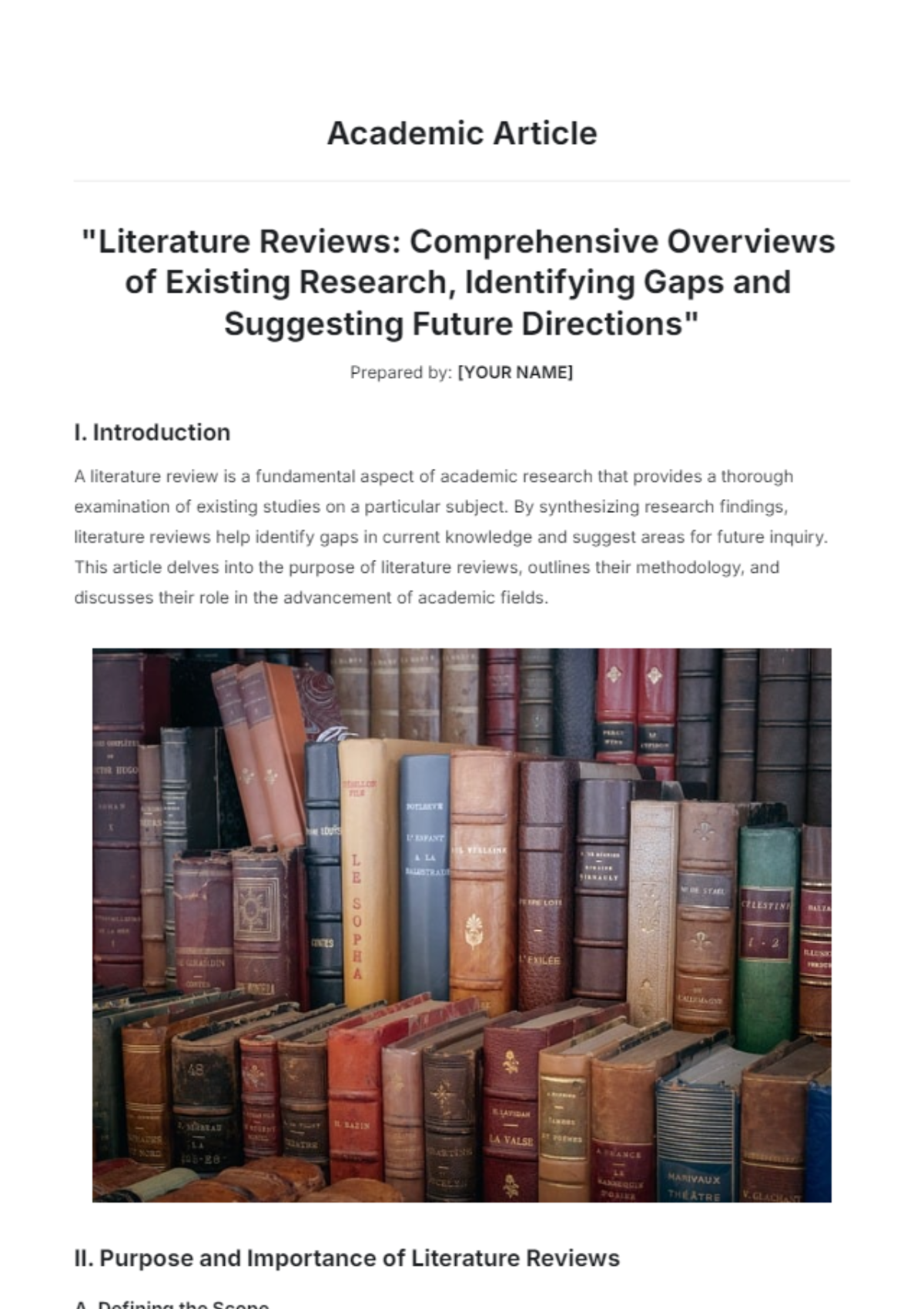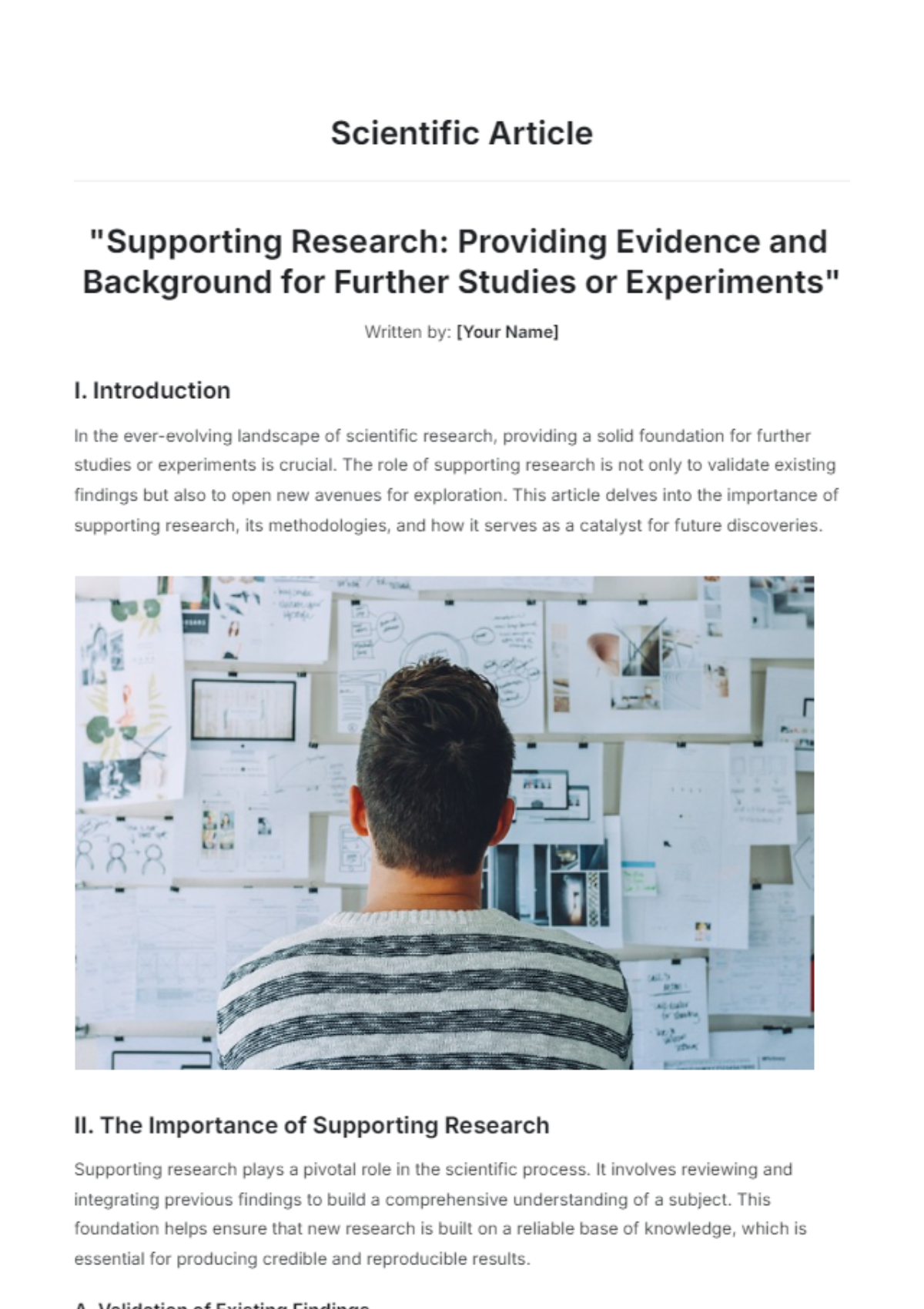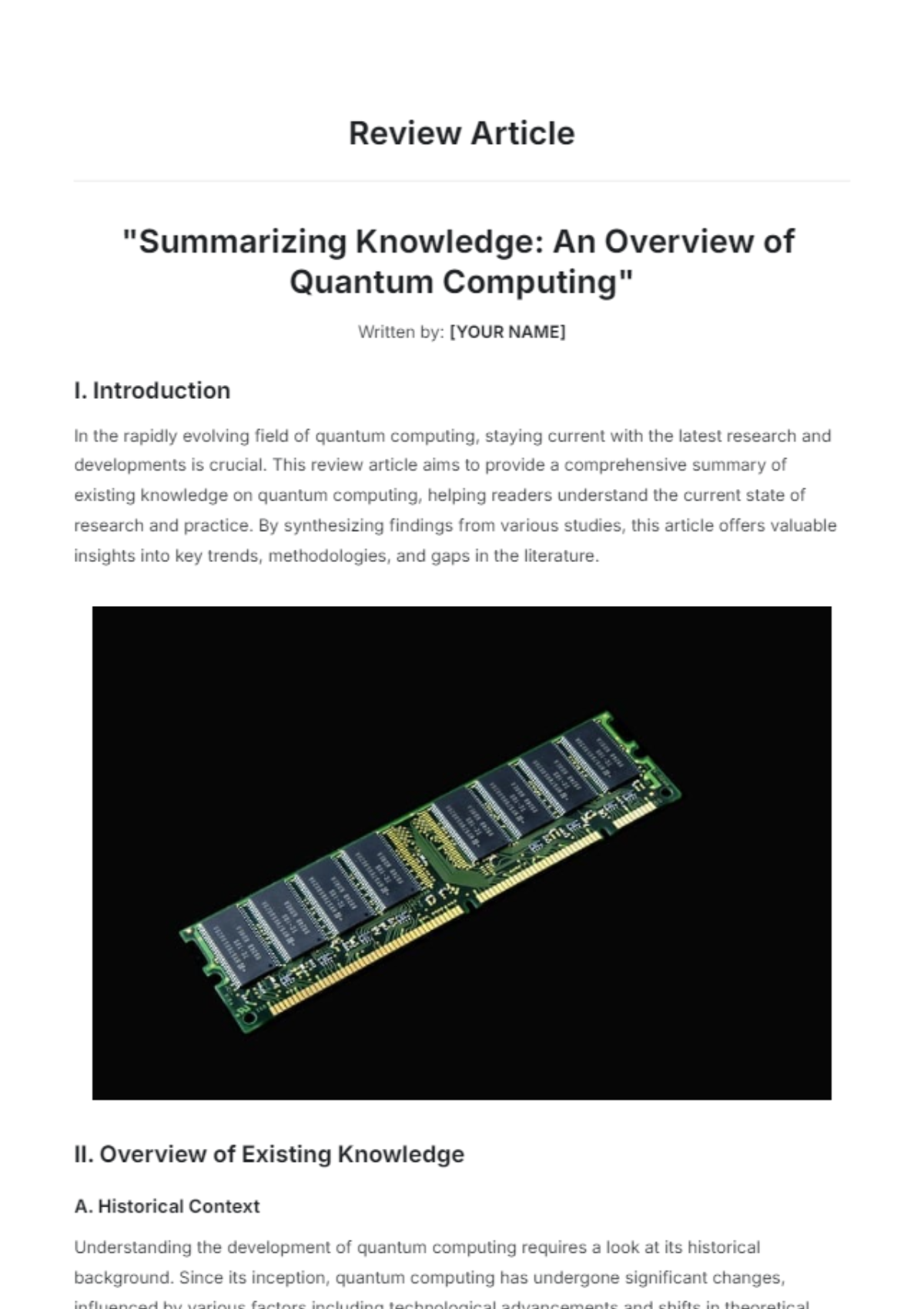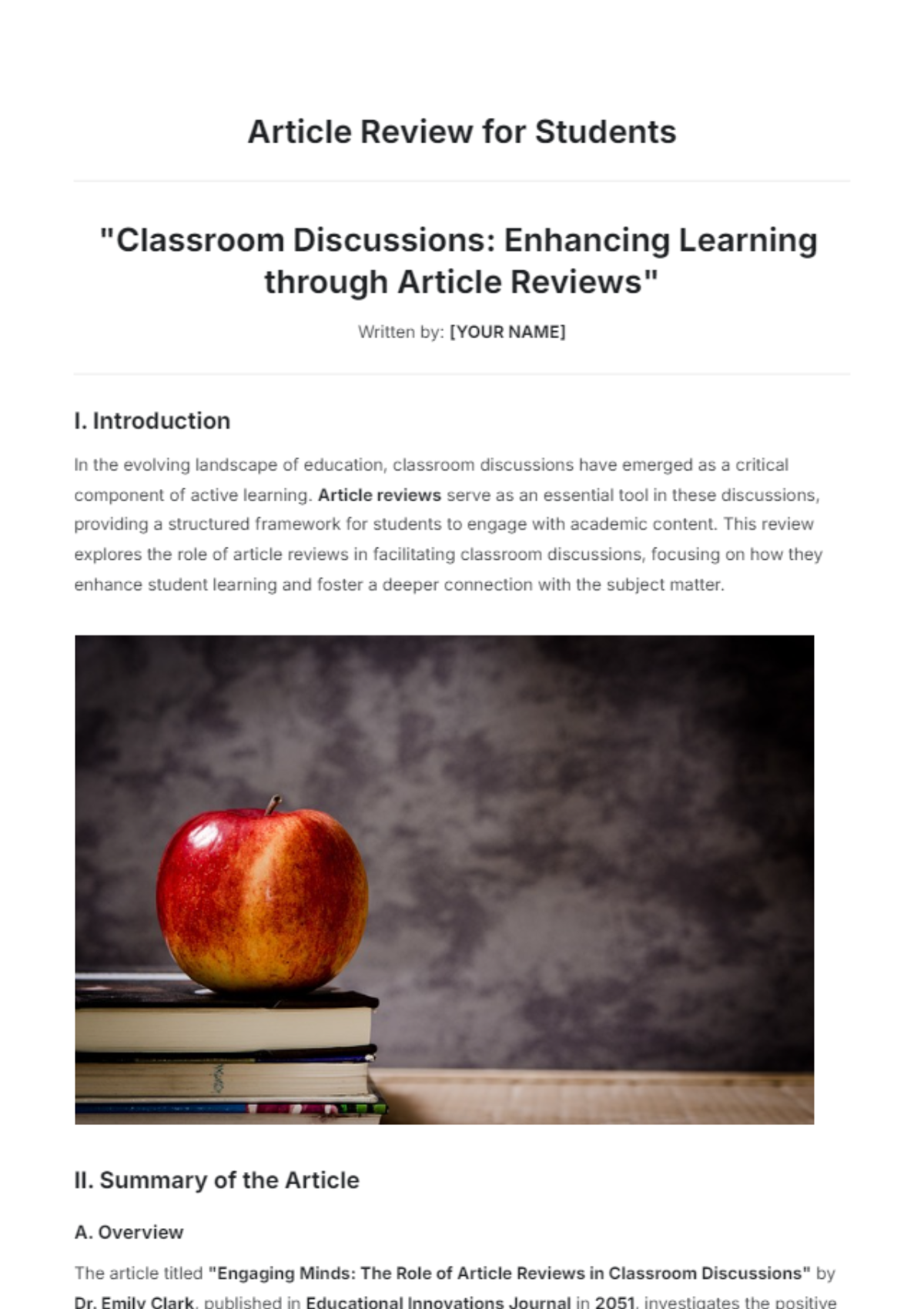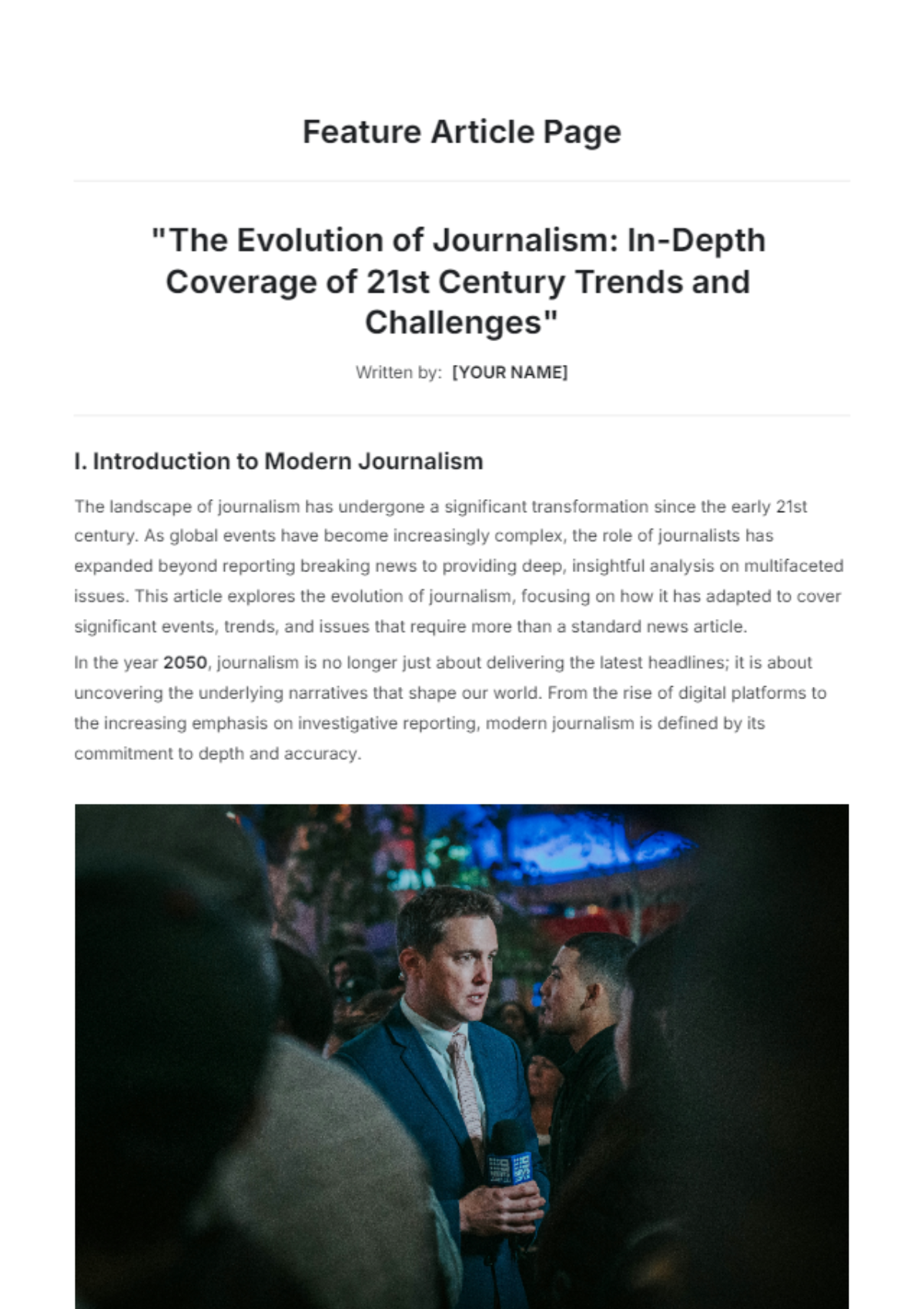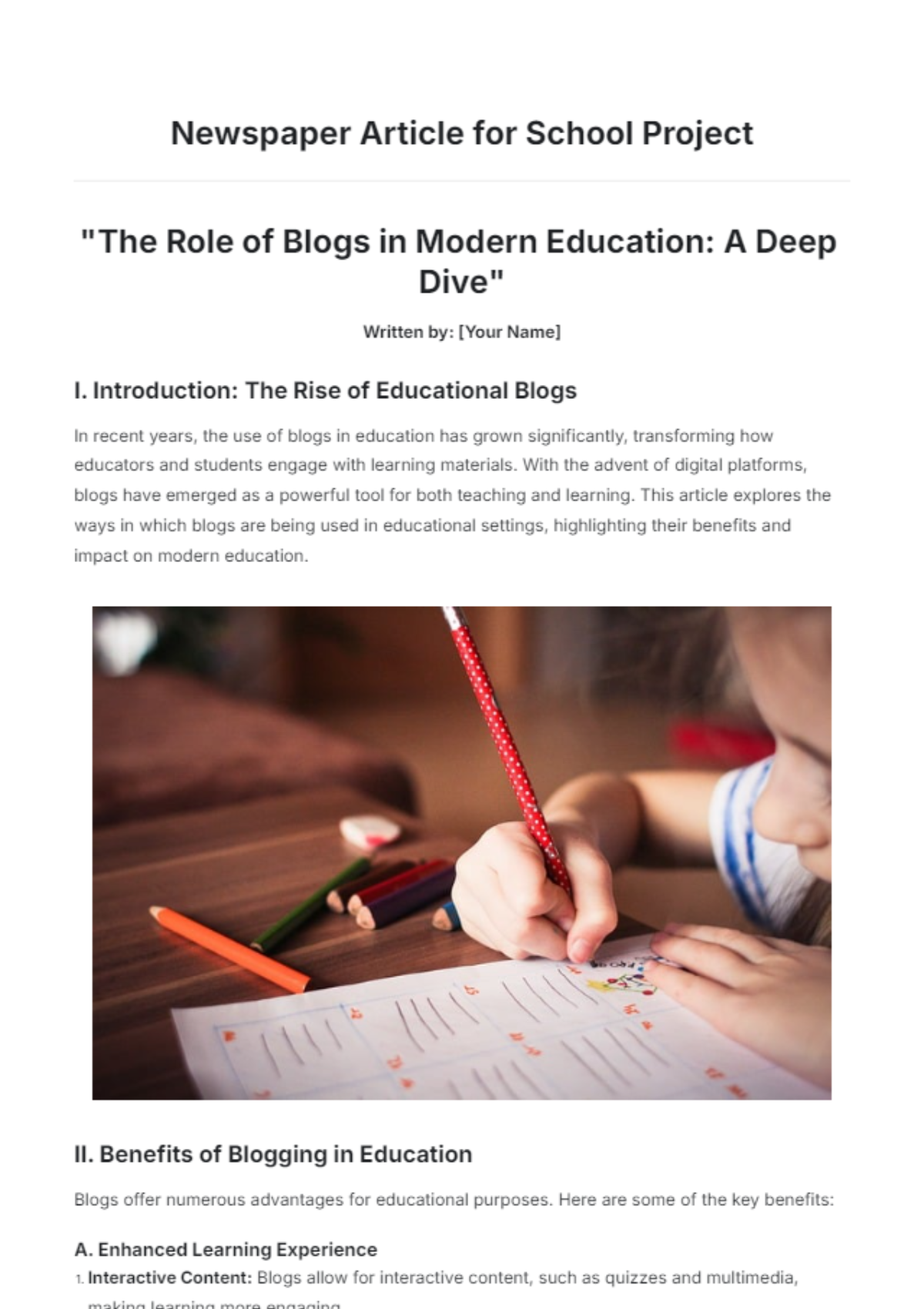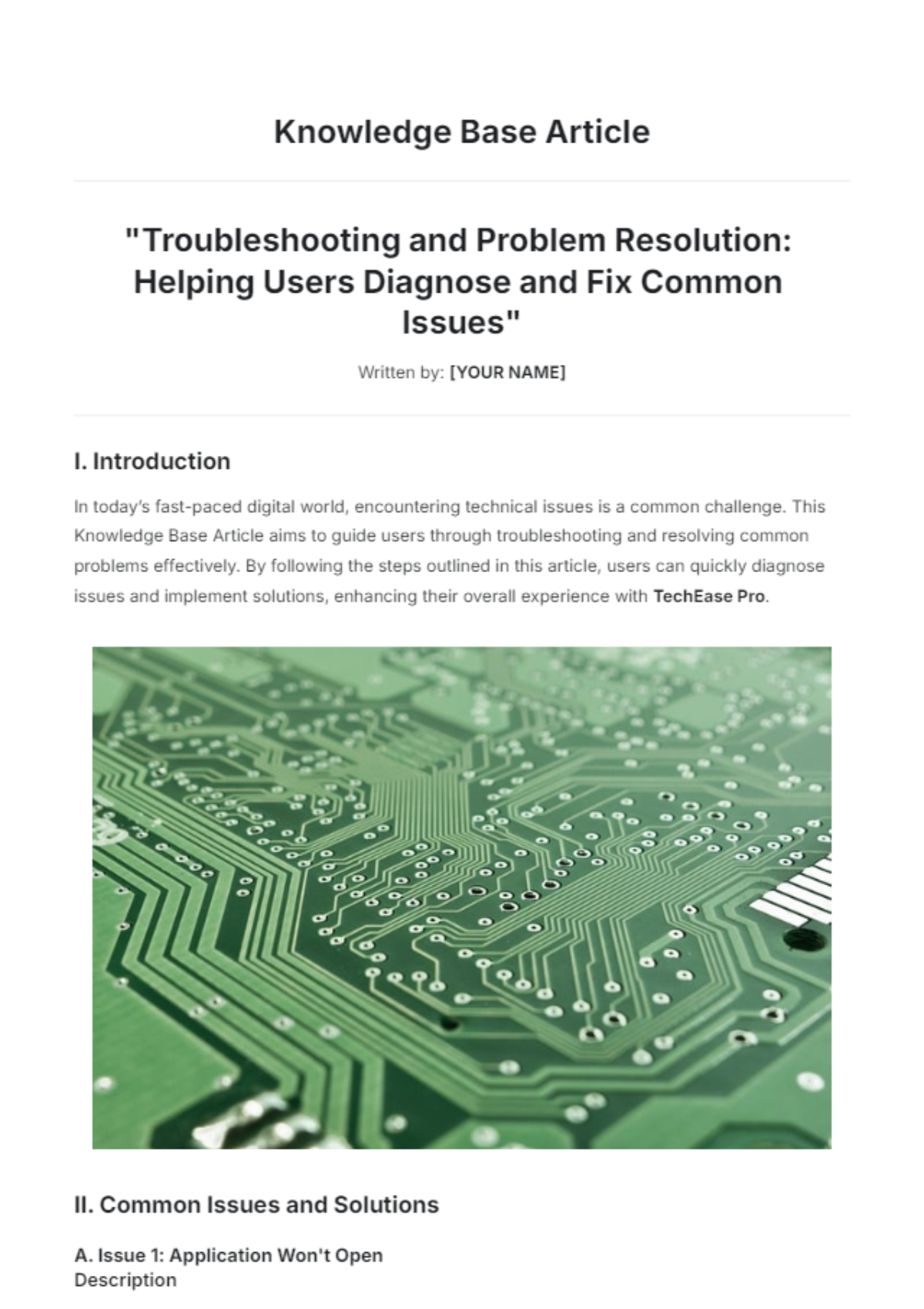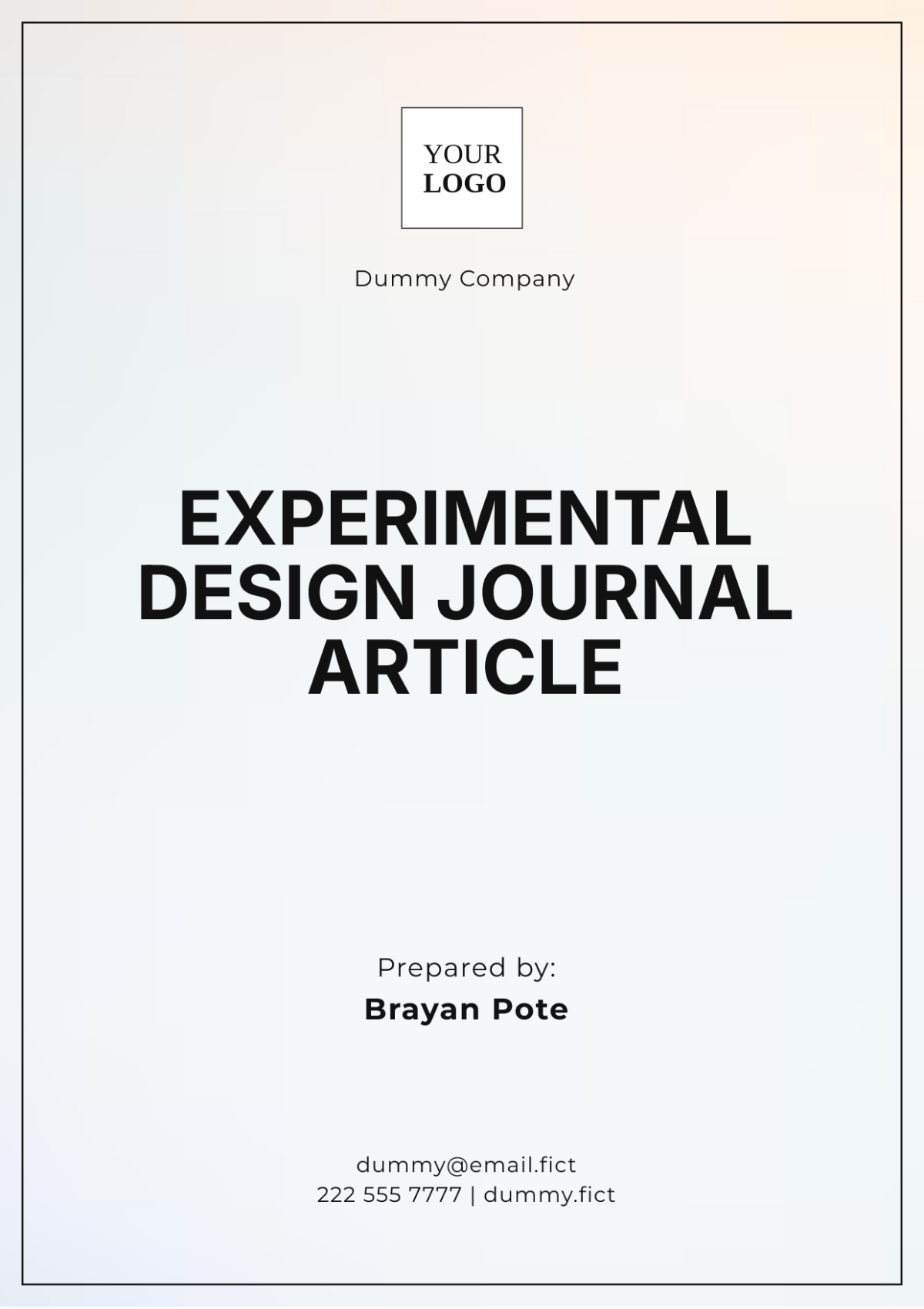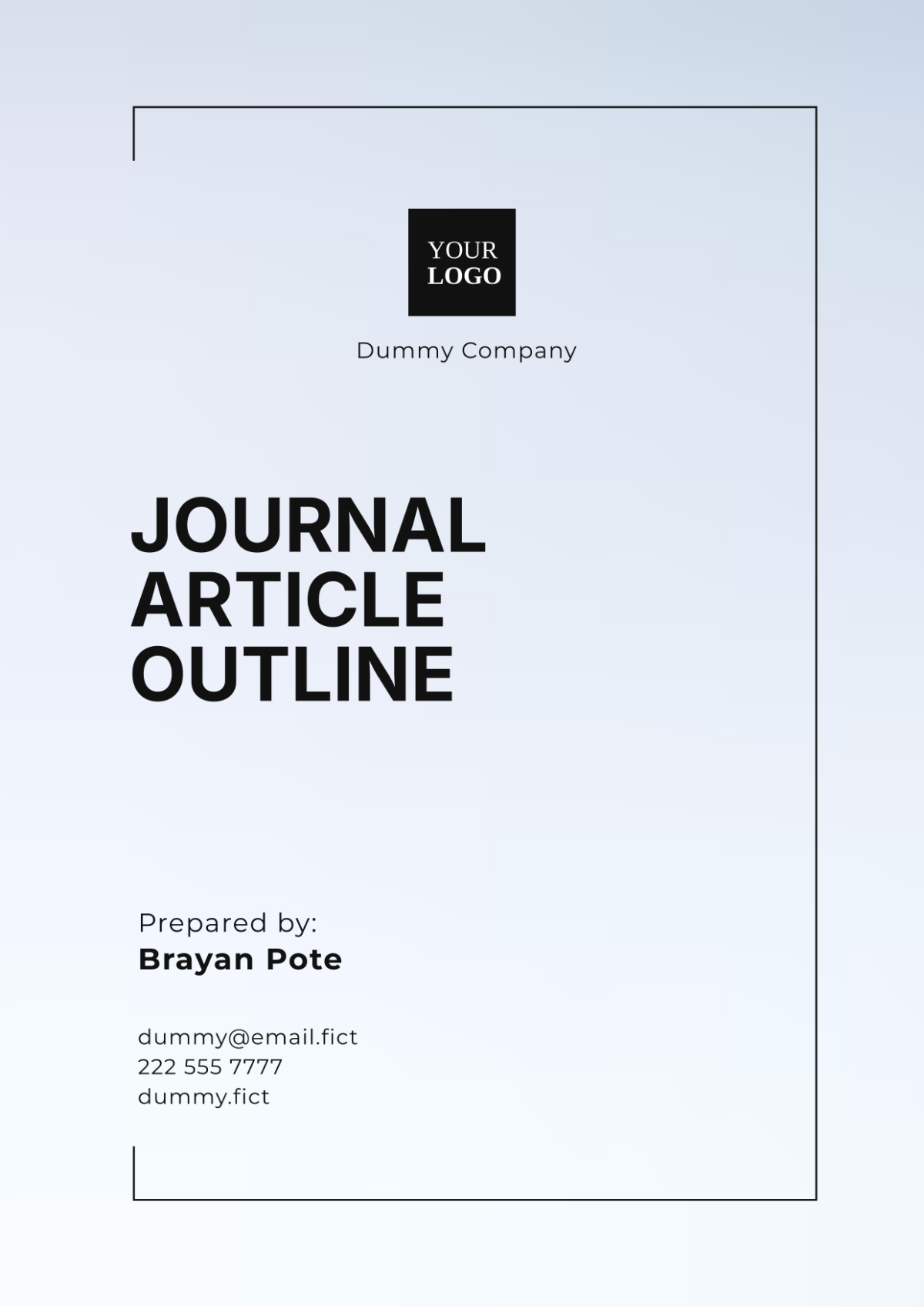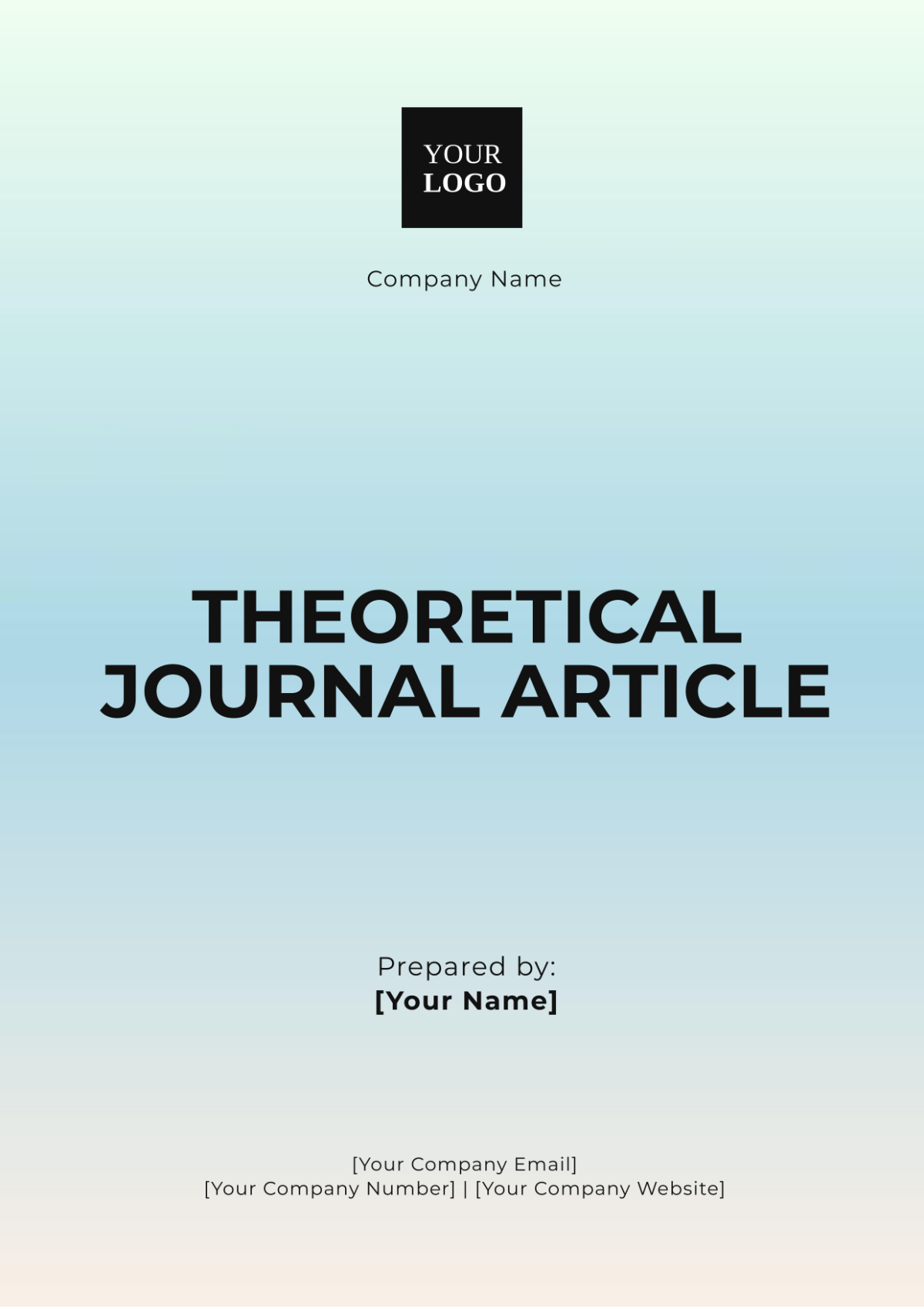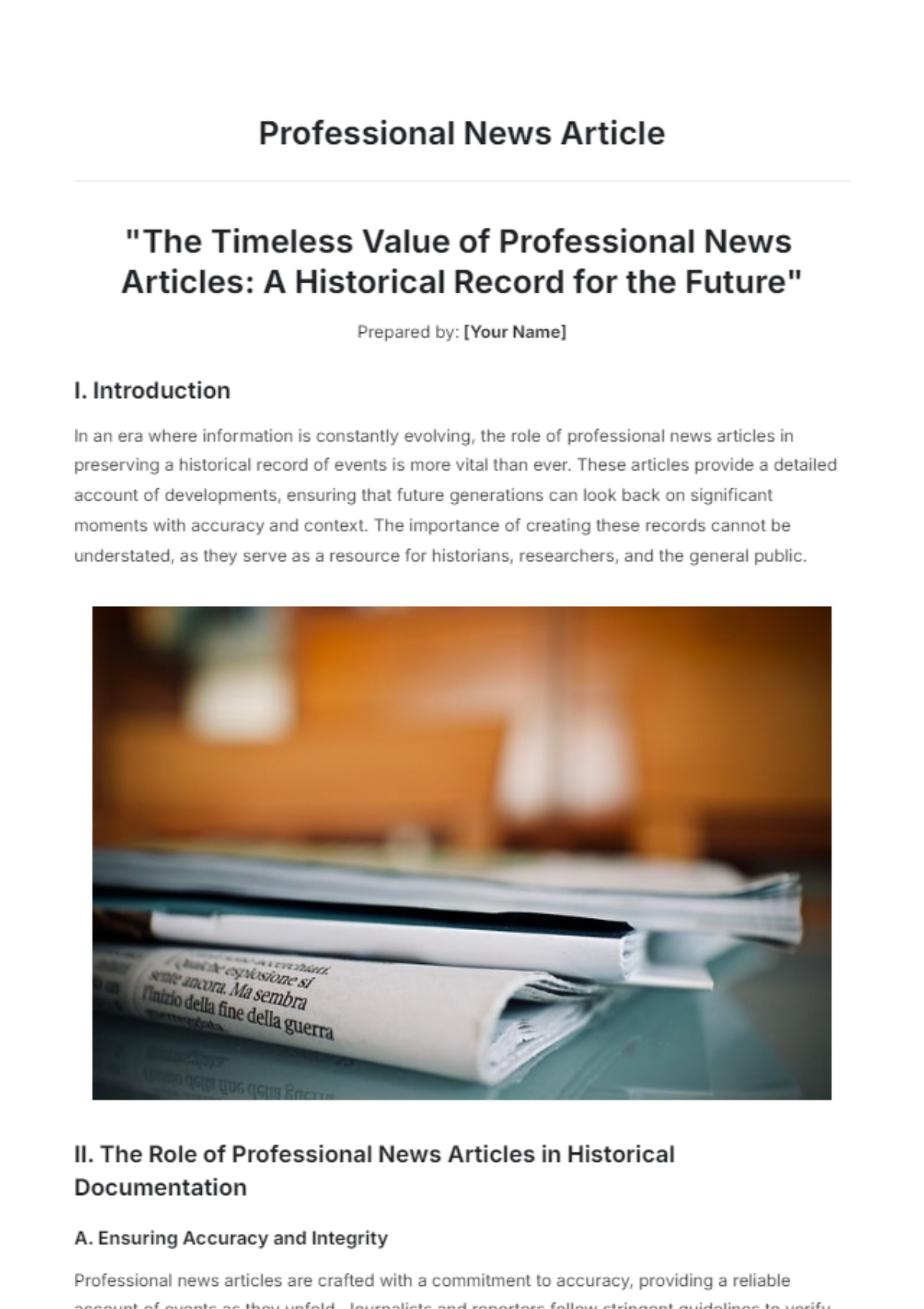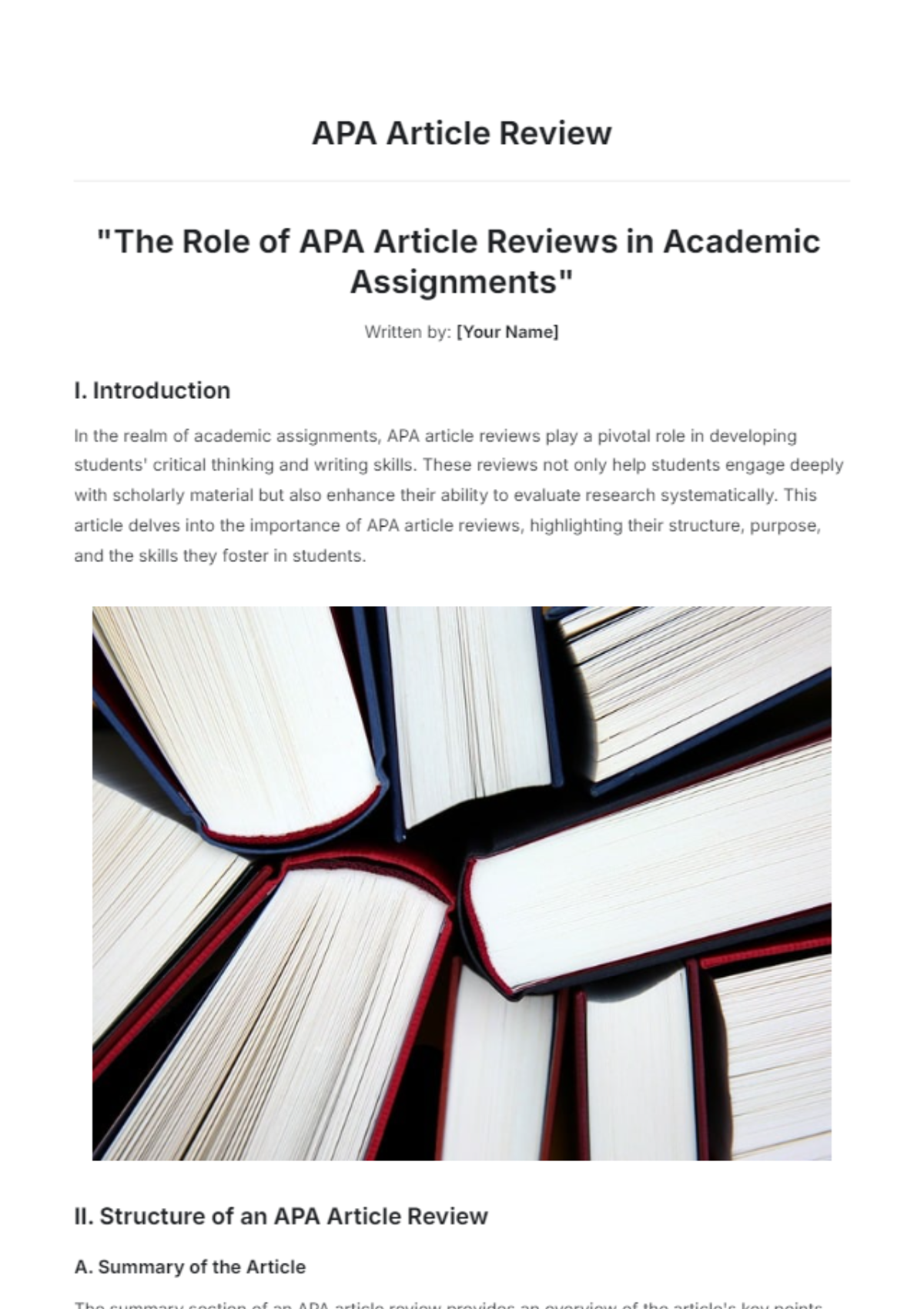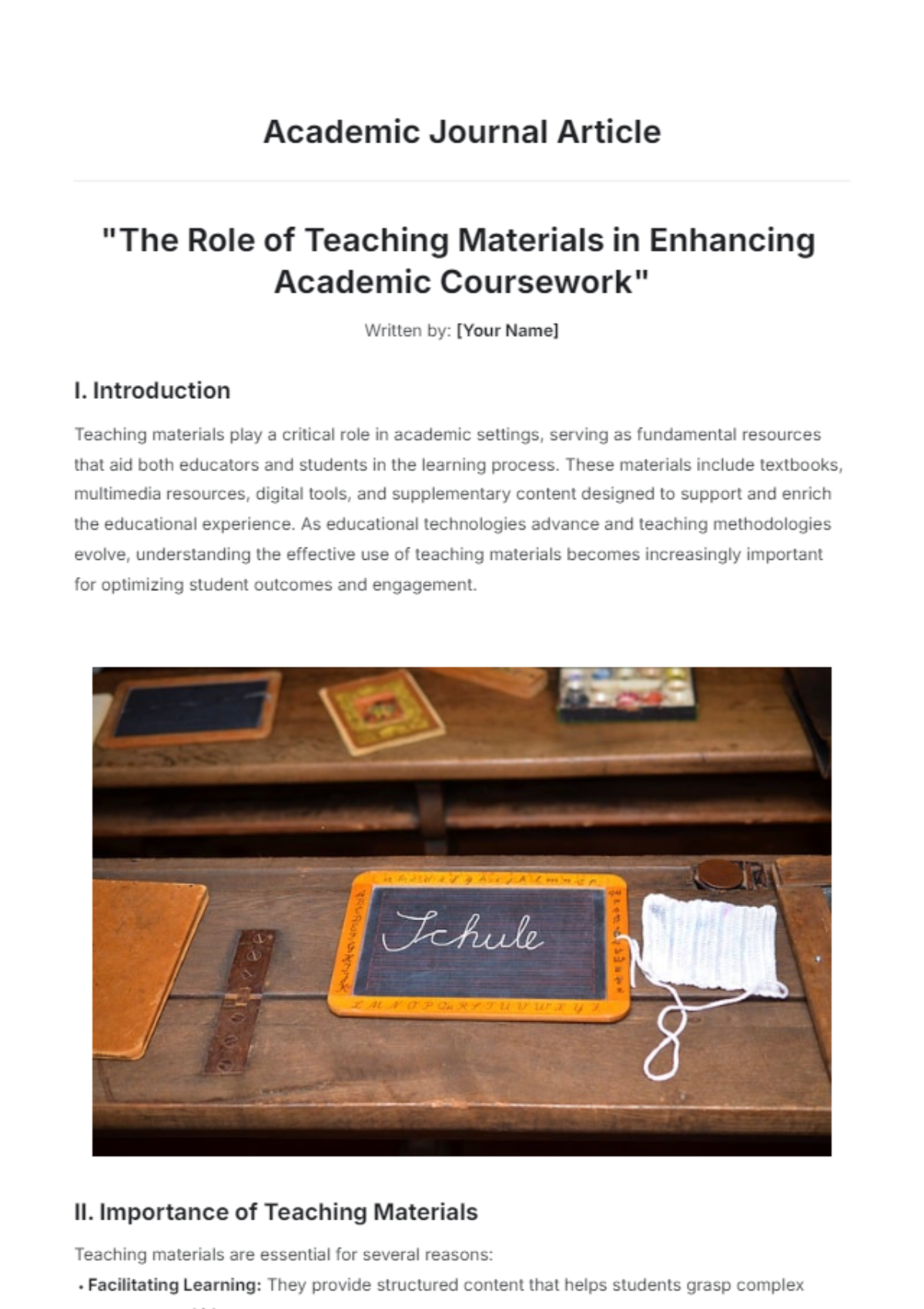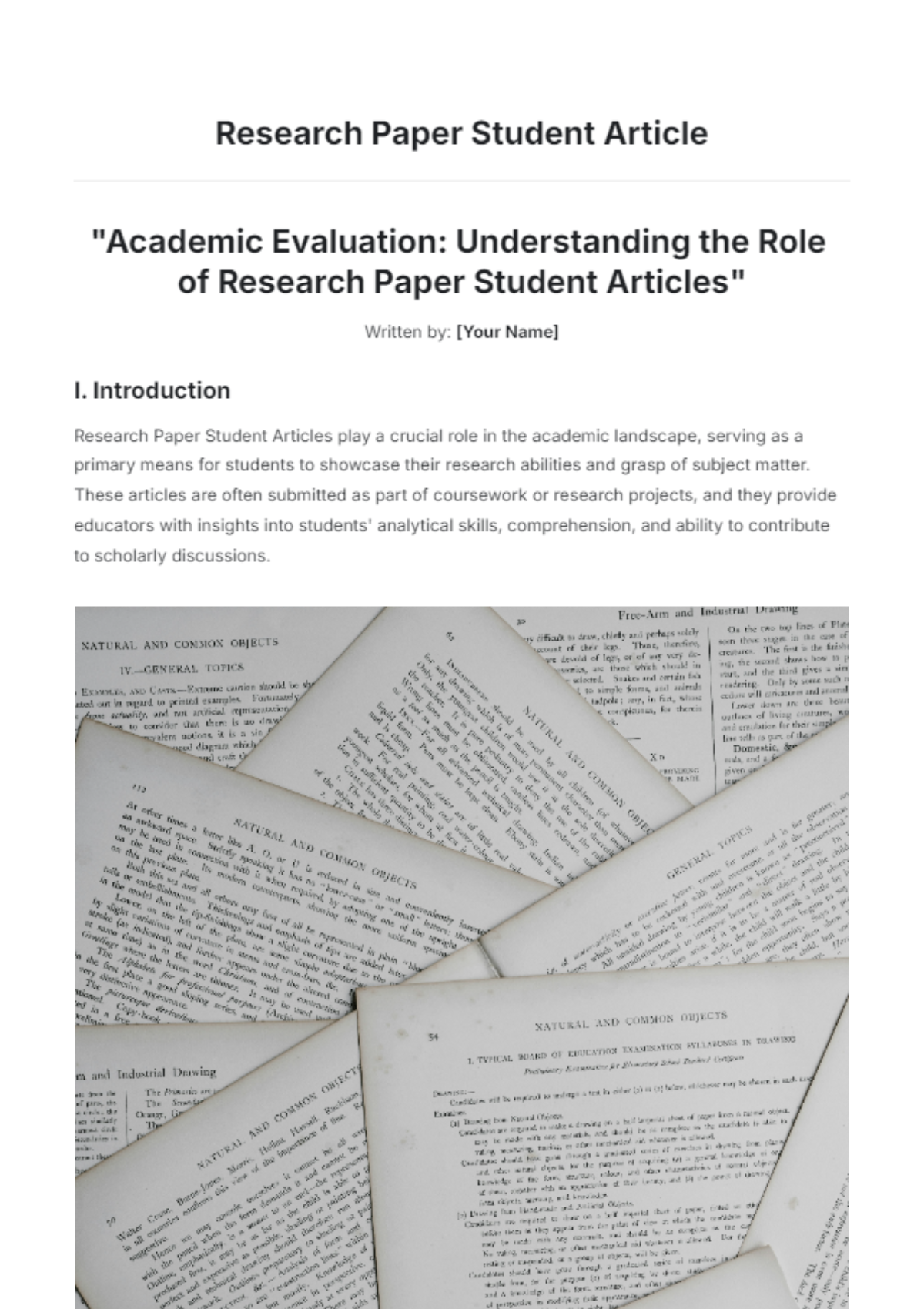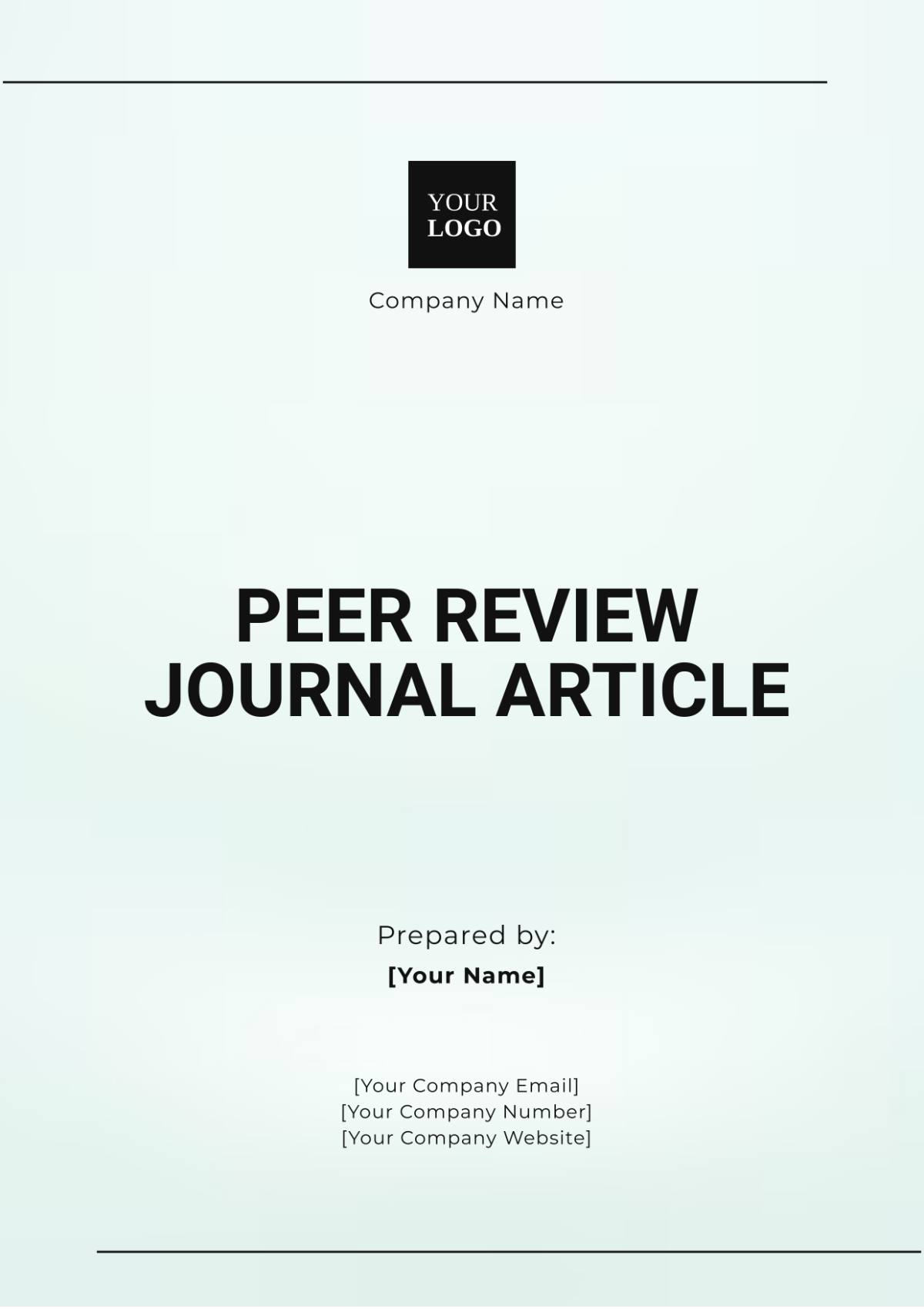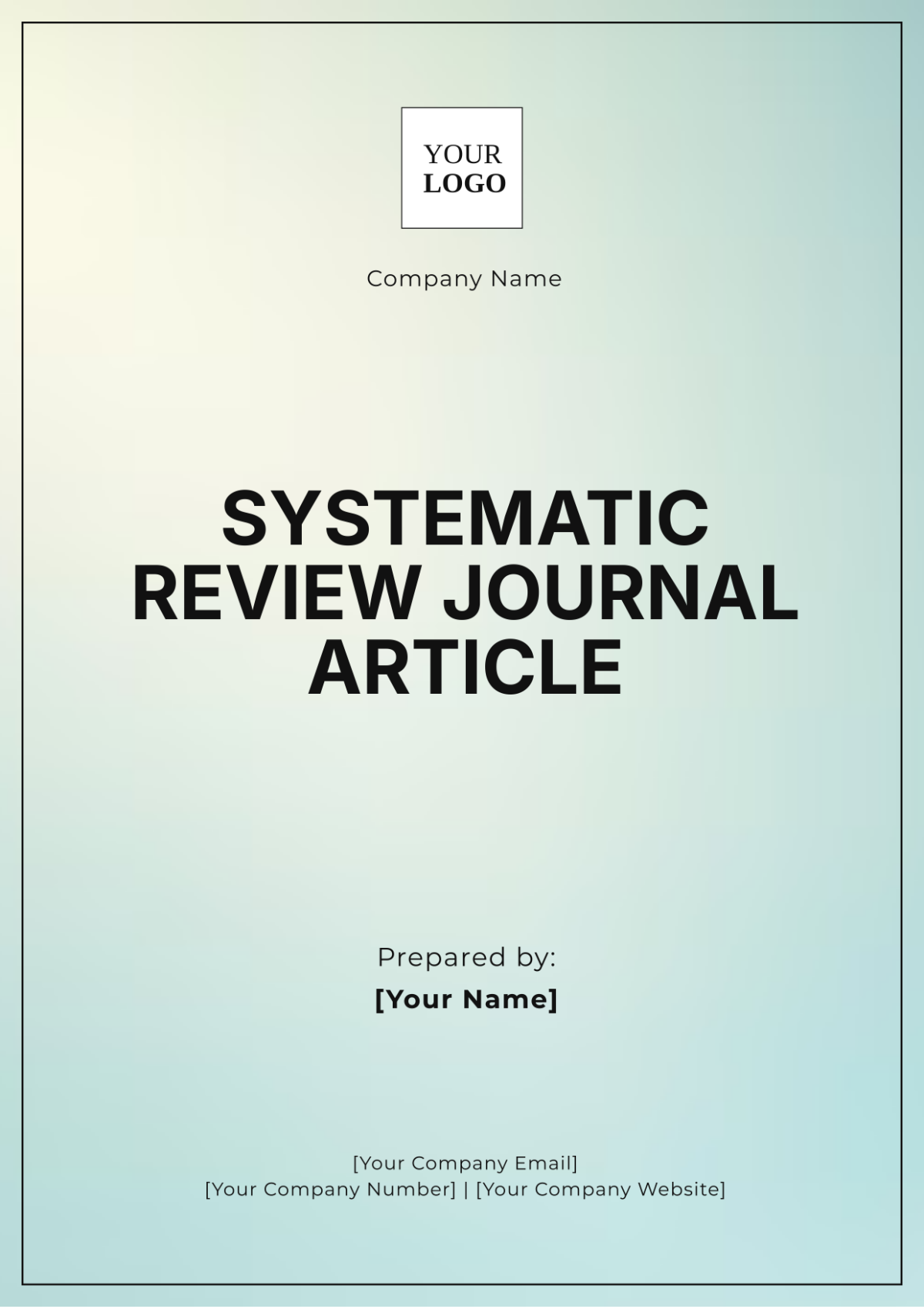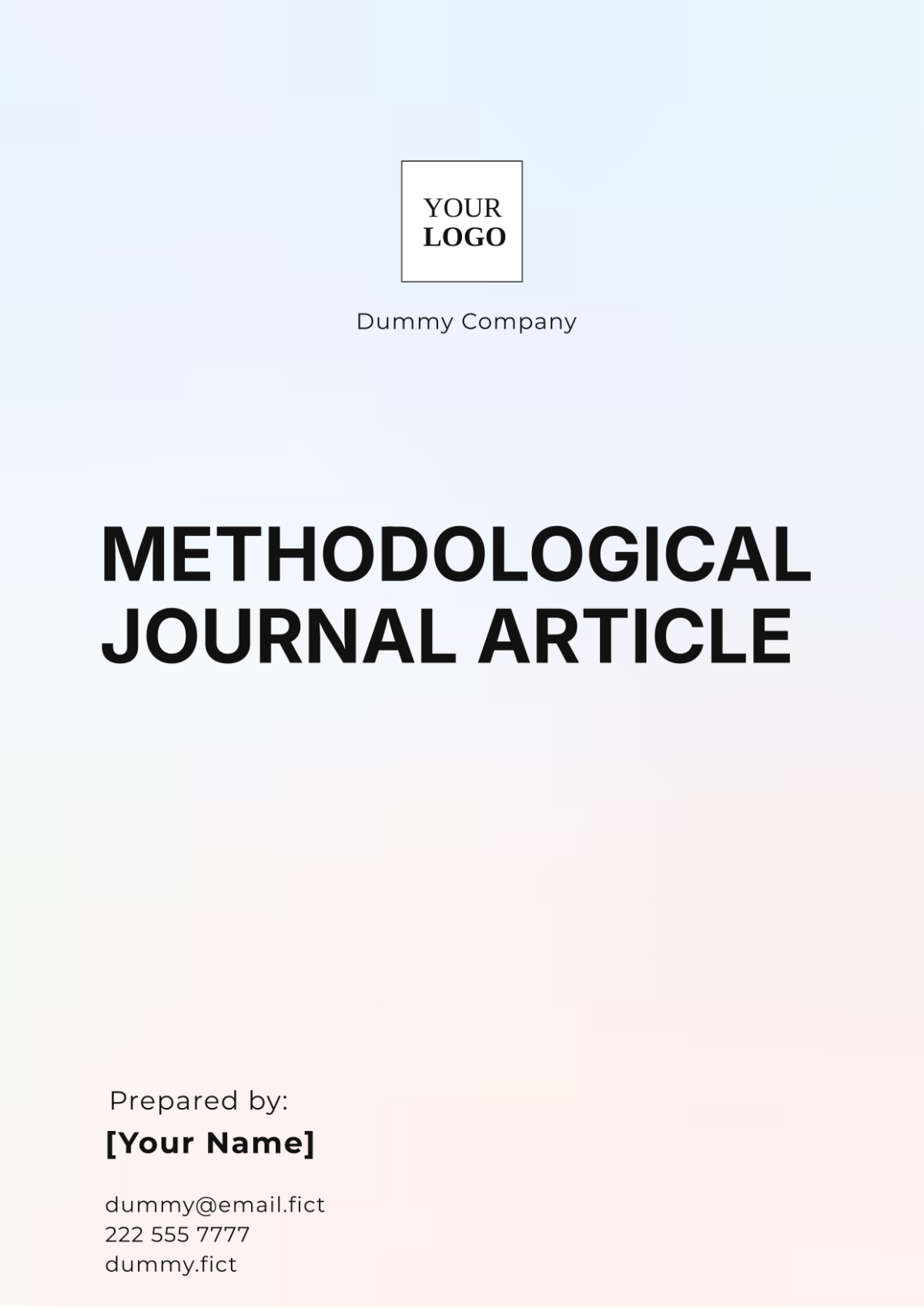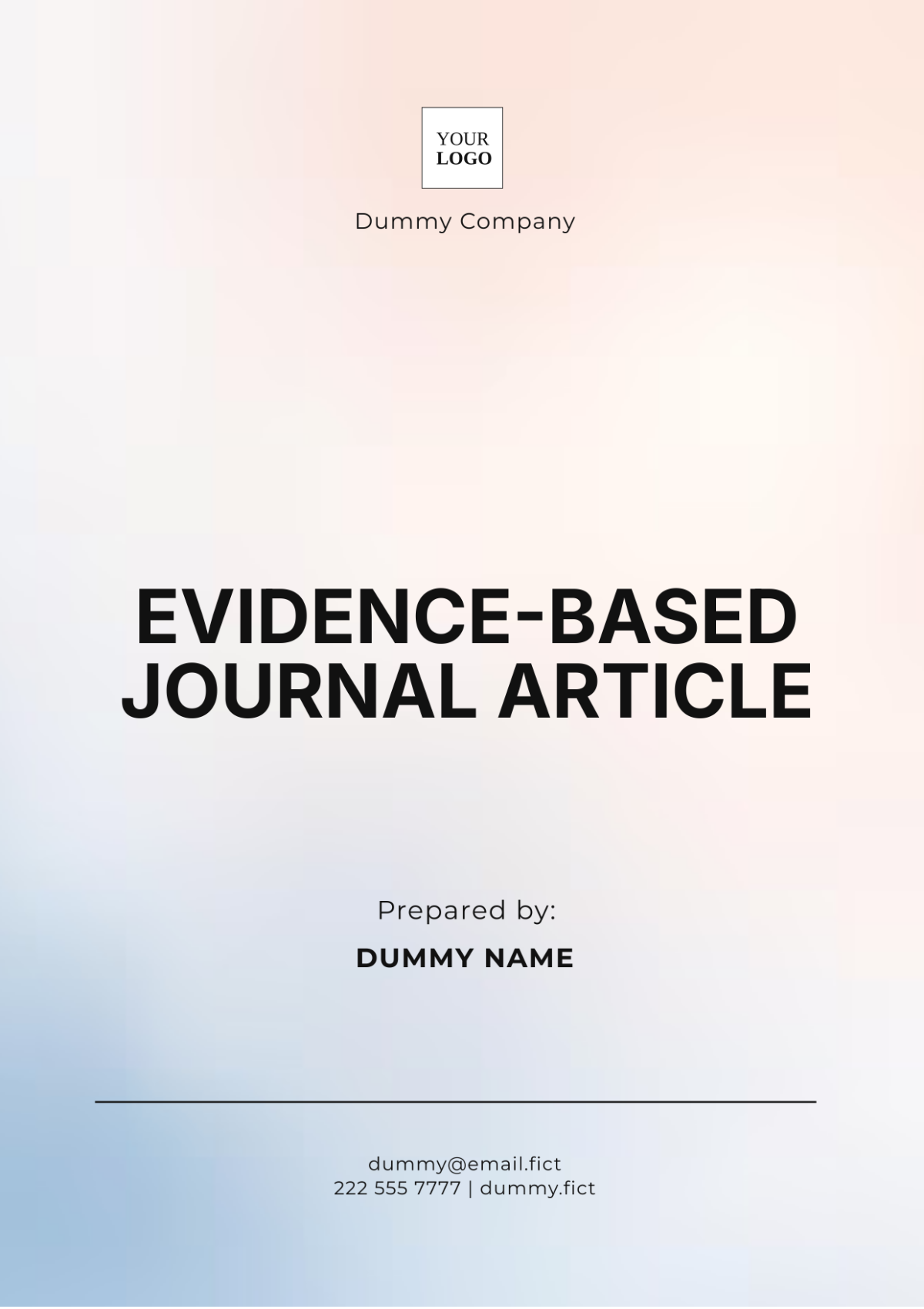Methodological Journal Article
Prepared by: [Your Name]
Date: [Date]
1. Abstract
This article explores recent advancements in research methodologies, focusing on new techniques and refinements that enhance the accuracy and efficiency of scientific investigations. By examining various methodological innovations, this study aims to provide a comprehensive overview of how these developments can be applied across different research fields to improve data collection, analysis, and interpretation.
2. Introduction
Research methodologies form the backbone of scientific inquiry, determining how data is collected, analyzed, and interpreted. The evolution of these methods is crucial for advancing knowledge and ensuring that research outcomes are both reliable and valid. This article highlights recent methodological innovations and their impact on research practices. It addresses the need for updated techniques in response to emerging challenges and the growing complexity of data.
3. Literature Review
3.1 Historical Context
Historically, research methodologies have undergone significant transformations, from early statistical techniques to contemporary computational approaches. Understanding this evolution provides context for current innovations. Early methodologies focused on basic statistical analyses and controlled experiments, while recent advancements include sophisticated statistical models and data mining techniques.
3.2 Current Methodological Challenges
Recent reviews indicate several challenges in contemporary research methodologies, including issues with data integrity, reproducibility, and the integration of large datasets. These challenges have spurred the development of new methods aimed at addressing these issues, such as advanced data validation techniques and innovative analytical tools.
4. Methodology
4.1 Design and Framework
The methodological advancements discussed in this article are organized into three main categories: data collection techniques, data analysis methods, and data validation processes. Each category is examined in detail to provide a comprehensive understanding of the innovations and their applications.
4.2 Data Collection Techniques
Adaptive Surveys: Adaptive survey designs adjust the data collection process based on real-time feedback, allowing for more efficient and responsive data gathering.
Mobile Data Collection Tools: The use of mobile applications for data collection has increased accessibility and accuracy, especially in field studies and remote locations.
4.3 Data Analysis Methods
Machine Learning Algorithms: Recent developments in machine learning have introduced new algorithms that enhance predictive accuracy and pattern recognition in large datasets.
Bayesian Methods: Bayesian approaches offer a flexible framework for incorporating prior knowledge and updating beliefs based on new data, improving the robustness of statistical inferences.
4.4 Data Validation Processes
Cross-Validation Techniques: Advanced cross-validation methods help assess the reliability of statistical models by partitioning data into subsets for training and testing.
Data Integrity Checks: Innovations in data integrity checks, such as automated anomaly detection, ensure the accuracy and consistency of research findings.
5. Results
5.1 Application of Innovations
The application of these methodological innovations has demonstrated significant improvements in research outcomes. For instance, adaptive surveys have reduced data collection time by 30% while increasing respondent accuracy. Machine learning algorithms have improved predictive accuracy in complex datasets by up to 25%.
5.2 Case Studies
Several case studies illustrate the practical application of these innovations:
Field Research in Remote Areas: Mobile data collection tools have facilitated research in remote locations where traditional methods were impractical.
Predictive Analytics in Healthcare: Machine learning algorithms have enhanced the accuracy of predictive models in healthcare, leading to more effective disease management strategies.
6. Discussion
6.1 Implications for Future Research
The advancements discussed offer promising avenues for future research, including the potential for integrating these methods into existing frameworks and exploring new applications. The continuous evolution of research methodologies is essential for addressing emerging challenges and improving the overall quality of scientific inquiry.
6.2 Practical Applications
These methodological innovations have practical implications for various fields, including social sciences, healthcare, and environmental studies. By adopting these advanced techniques, researchers can enhance the reliability and validity of their findings, contributing to more informed decision-making and policy development.
7. Conclusion
This article has provided an extensive overview of recent advancements in research methodologies, highlighting new techniques and their impact on improving research practices. The innovations discussed offer significant potential for enhancing the accuracy and efficiency of scientific investigations, underscoring the importance of continual methodological development.
8. References
Smith, J. (2052). Advances in Adaptive Survey Designs. Journal of Research Methods, 12(4), 234-245.
Brown, L., & Green, T. (2051). Machine Learning in Predictive Analytics. Data Science Review, 8(3), 122-139.
Taylor, M. (2050). Bayesian Approaches to Statistical Inference. Statistical Journal, 15(2), 89-104.
Johnson, A. (2053). Mobile Data Collection Tools: A Comprehensive Review. Field Research Journal, 10(1), 56-70.





